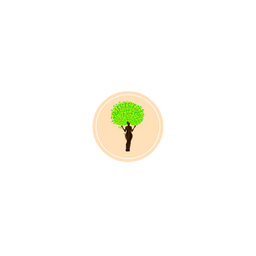Africa is a continent known for its rich cultural heritage, diverse customs, and vibrant traditions. One aspect of African culture that holds immense significance is traditional African medicine. For centuries, African healers have relied on a combination of natural remedies, rituals, and spiritual beliefs to provide healing and maintain the overall well-being of individuals and communities. In this article, we will explore the fascinating world of traditional African medicine and its profound impact on African societies.
An Ancient Practice Passed Down through Generations
Traditional African medicine is deeply rooted in the history and traditions of various indigenous African tribes and societies. It is a practice that has been passed down through generations, with knowledge and expertise transmitted from elders to younger members of the community. Unlike modern medicine, which is often compartmentalized, traditional African medicine takes a holistic approach, recognizing the interconnectedness of the body, mind, and spirit.
The Role of Traditional Healers
In African communities, traditional healers play a pivotal role as primary healthcare providers. These healers, often referred to as herbalists, medicine men, or sangomas, are highly respected individuals who possess a deep understanding of herbal remedies, spiritual rituals, and divination practices. They use their knowledge and skills to heal the sick, offer protection, and provide guidance to their communities.
The Power of Herbal Remedies
Herbal remedies are a central component of traditional African medicine. African healers possess an extensive knowledge of various plant species and their medicinal properties. They use these herbs to concoct remedies that target specific ailments and promote overall well-being. From the healing properties of aloe vera to the immune-boosting effects of moringa, traditional African medicine harnesses the power of nature to restore and maintain health.
The Influence of Spirituality
In traditional African medicine, spirituality and healing are intimately intertwined. African healers believe that illness is often caused by spiritual imbalances or disharmony. Therefore, their approach to healing encompasses spiritual rituals and divination practices aimed at addressing these underlying causes. These rituals may involve offerings to ancestors, the use of sacred objects, or the performance of specific ceremonies to restore spiritual equilibrium.
Respect for Ancestral Wisdom
African societies place great emphasis on ancestral wisdom and the role of ancestors in guiding and protecting the living. Traditional African medicine acknowledges the wisdom and guidance of ancestors and often incorporates ancestral rituals and practices. These rituals not only serve as a means of healing but also as a way to honor and connect with the ancestral spirits, seeking their blessings and guidance.
Rituals and Ceremonies
Rituals and ceremonies hold a special place in traditional African medicine. These practices are designed to bring about physical healing, emotional well-being, and spiritual balance. Whether it's the use of sacred dance, drumming, chanting, or the application of herbal preparations, each ritual carries its own significance and symbolism. These rituals not only facilitate healing but also promote a sense of community and unity.
Traditional Medicine and Modern Healthcare
Traditional African medicine continues to be widely practiced in many African countries, side by side with modern healthcare systems. While modern medicine has made significant advancements in diagnosis and treatment, traditional African medicine offers a unique perspective on healthcare, emphasizing the importance of holistic well-being and the harmonious coexistence of individuals within their communities.
Preserving and Honoring African Traditions
As African communities adapt to the changing world, it is essential to preserve and honor traditional African practices, including traditional medicine. By embracing and supporting traditional healers and their knowledge, communities can ensure the continuity of this rich cultural heritage. Recognizing the value of traditional African medicine can also lead to fruitful collaborations between modern healthcare providers and traditional healers, resulting in more comprehensive and inclusive healthcare systems.
A Source of Inspiration and Cultural Pride
Traditional African medicine is not just a system of healing but a source of inspiration and cultural pride. The wisdom, rituals, and remedies passed down through generations offer a glimpse into the profound connection Africans have with nature, their ancestors, and their communities. By celebrating traditional African medicine, we honor the resilience and resourcefulness of African cultures and acknowledge the invaluable contributions they have made to the world of healthcare and healing.
Embracing the Diversity of Healing
In a world that often prioritizes western medicine, it is crucial to recognize and embrace the diversity of healing practices that exist across cultures. Traditional African medicine provides valuable insights into alternative approaches to health and well-being. By opening our minds and hearts to the wisdom of traditional African medicine, we expand our understanding of what it means to be healthy and forge pathways for inclusive and culturally sensitive healthcare systems.
Conclusion
Traditional African medicine is undeniably a treasure trove of ancient wisdom and healing practices. It is a testament to the resourcefulness and ingenuity of African cultures and their deep-rooted connection to the natural world. By acknowledging and celebrating traditional African medicine, we not only honor the cultural heritage of African communities but also gain valuable insights into alternative approaches that can enrich and complement modern healthcare systems. Let us continue to embrace the diversity of healing practices and foster a world where every culture is valued and respected.


